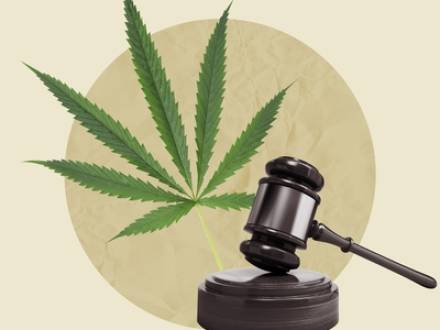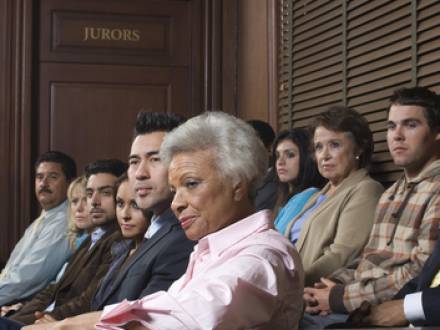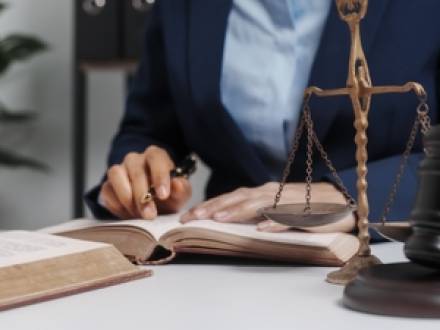Recent Blog Posts
Could Federal Cannabis Laws Change in 2024?
 The last several years have seen growing acceptance of marijuana use throughout much of the United States. Multiple states, including Connecticut, have legalized the adult use of marijuana and allowed cannabis to be sold by licensed dispensaries. Many people have hoped to see the federal government follow suit and legalize marijuana at the federal level, but following the election of Donald Trump as president, that now seems unlikely.
The last several years have seen growing acceptance of marijuana use throughout much of the United States. Multiple states, including Connecticut, have legalized the adult use of marijuana and allowed cannabis to be sold by licensed dispensaries. Many people have hoped to see the federal government follow suit and legalize marijuana at the federal level, but following the election of Donald Trump as president, that now seems unlikely.
Since the laws surrounding marijuana seem to constantly be in flux, the possibility of drug charges for those who use, sell, distribute, or transport this substance continues to exist. Those who have been arrested for possession, distribution, manufacturing, or trafficking of cannabis or other substances will need to secure representation from a Connecticut criminal defense attorney who can help defend against criminal charges.
Prosecutorial Misconduct May Affect Jury Selection in Criminal Cases
 People who are accused of crimes often feel that they are at a disadvantage when defending against criminal charges. Prosecutors have significant resources available to them, and in some cases, they may engage in misconduct that affects the fairness of criminal proceedings. One issue that can play a role in many cases is jury selection, and when prosecutors engage in discrimination and other Constitutional violations when selecting the members of a jury, this can lead to unjust results, including wrongful convictions or unfair sentences.
People who are accused of crimes often feel that they are at a disadvantage when defending against criminal charges. Prosecutors have significant resources available to them, and in some cases, they may engage in misconduct that affects the fairness of criminal proceedings. One issue that can play a role in many cases is jury selection, and when prosecutors engage in discrimination and other Constitutional violations when selecting the members of a jury, this can lead to unjust results, including wrongful convictions or unfair sentences.
Because of the serious nature of criminal cases and the methods used by prosecutors to secure convictions, it is crucial for defendants to make sure they have legal representation. An experienced Hartford, CT criminal defense attorney can work to make sure a defendant’s rights are protected, and develop a strong defense strategy if necessary to address prosecutorial misconduct or other issues that led to wrongful convictions.
DEA Ordered to Stop Searches and Seizures at Airports
 In recent years, the practice of asset forfeiture has received a great deal of attention. Law enforcement officials can use asset forfeiture to seize money or property that they believe is connected to a crime. However, this practice has led to a great deal of abuse, including many situations where people traveling through airports while carrying large amounts of cash have had their money seized by the Drug Enforcement Administration (DEA).
In recent years, the practice of asset forfeiture has received a great deal of attention. Law enforcement officials can use asset forfeiture to seize money or property that they believe is connected to a crime. However, this practice has led to a great deal of abuse, including many situations where people traveling through airports while carrying large amounts of cash have had their money seized by the Drug Enforcement Administration (DEA).
Criminal justice advocates have been fighting against this practice, and recently, the Department of Justice stepped in to prevent ongoing abuses by the DEA. People who are arrested and charged with crimes will often need to address the seizure of their assets while also determining their best options for defense against criminal charges. A skilled Hartford, CT attorney can help build a successful defense strategy while also working to recover assets that have been seized.
Sex Offender Registration Causes Difficulties After Leaving Prison
 People who are charged with sex crimes will often face harsh penalties upon conviction, including lengthy prison sentences. However, the effects of a conviction extend beyond when a person has completed their sentence, often impacting them for the rest of their life. The requirement to register as a sex offender can place numerous restrictions on a person, limiting where they can live and work and making it difficult to succeed after being released.
People who are charged with sex crimes will often face harsh penalties upon conviction, including lengthy prison sentences. However, the effects of a conviction extend beyond when a person has completed their sentence, often impacting them for the rest of their life. The requirement to register as a sex offender can place numerous restrictions on a person, limiting where they can live and work and making it difficult to succeed after being released.
What may seem like minor, technical violations of these restrictions can land a person back in prison, placing them in a cycle that may seem impossible to escape. Sadly, many people on the sex offender registry are not predators, but are instead vulnerable members of society. They include transgender people, sex workers, people addicted to drugs, people who have been victims of abuse, and others who are at risk.
Understanding the effects of sex offender registration is not always easy, especially when defending against criminal charges. To help prevent these issues, anyone accused of a sex crime will want to work with an East Hartford, CT criminal defense attorney to determine their best options for defense.
Can U.S. Prisons Improve by Using the Scandinavian Model?
 The problem of mass incarceration in the United States is well-known. With around two million prisoners held in both state and federal prisons, taxpayers spend more than $80 billion annually to keep these institutions running. Conditions in prisons are harsh, and violence occurs regularly. The rates of recidivism are high, with around 65 percent of people who are released from prison being arrested and sentenced to additional prison time. Former prisoners are six times more likely to be unemployed than other people in the U.S.
The problem of mass incarceration in the United States is well-known. With around two million prisoners held in both state and federal prisons, taxpayers spend more than $80 billion annually to keep these institutions running. Conditions in prisons are harsh, and violence occurs regularly. The rates of recidivism are high, with around 65 percent of people who are released from prison being arrested and sentenced to additional prison time. Former prisoners are six times more likely to be unemployed than other people in the U.S.
While the need for prison reform is evident, there are many disagreements about what can be done to improve conditions in prison, reduce recidivism rates, and encourage rehabilitation. However, the prisons in Scandinavian countries like Norway and Sweden may provide a good example. These countries have achieved much better results from their prisons, including recidivism rates that are around 20 to 25 percent. Because of this, some prisons in the United States are looking to follow suit.
Supreme Court to Decide Whether Ghost Guns Are Considered Firearms
 Gun violence is an ongoing issue in the United States, and battles are constantly being waged between people who believe regulations are necessary to protect public safety and those who want to uphold their Second Amendment rights. One issue that has gained attention in recent years is the proliferation of "ghost guns," which are guns that may be assembled using kits that contain pre-made parts. The U.S. Supreme Court is currently considering a case that may affect how ghost guns are regulated, and this decision could affect criminal investigations and cases involving weapons charges.
Gun violence is an ongoing issue in the United States, and battles are constantly being waged between people who believe regulations are necessary to protect public safety and those who want to uphold their Second Amendment rights. One issue that has gained attention in recent years is the proliferation of "ghost guns," which are guns that may be assembled using kits that contain pre-made parts. The U.S. Supreme Court is currently considering a case that may affect how ghost guns are regulated, and this decision could affect criminal investigations and cases involving weapons charges.
As firearm regulations change based on new laws, policies, and court decisions, people who are facing criminal charges will need to understand how to address these issues. Representation from an experienced Hartford, CT attorney is crucial in cases involving weapons. A skilled lawyer can help ensure that issues related to weapons possession will be handled correctly during a criminal case.
Why Are People Charged With Federal Crimes Held in Jail Before Trial?
 The legal system in the United States is supposed to provide a presumption of innocence for people who are charged with crimes. Courts should behave as if defendants are innocent until they are proven guilty beyond a reasonable doubt. Unfortunately, the opposite is true in many criminal cases, especially in cases that are handled in federal courts.
The legal system in the United States is supposed to provide a presumption of innocence for people who are charged with crimes. Courts should behave as if defendants are innocent until they are proven guilty beyond a reasonable doubt. Unfortunately, the opposite is true in many criminal cases, especially in cases that are handled in federal courts.
Even though the Supreme Court has ruled that people who are charged with federal crimes should only rarely be held in jail while awaiting trial, this ruling has not been strictly enforced. Currently, around 75 percent of people charged with federal crimes are forced to remain in jail until their trials. There are several reasons for this, and it is clear that the system needs to be reformed to help address the ongoing issue of mass incarceration in the United States.
Because of the serious concerns related to bail and pretrial release in federal cases, it is crucial for anyone facing these types of charges to secure legal representation. An attorney with experience in federal criminal defense can help protect the rights of defendants, make sure they are treated fairly, and work to defend against a conviction.
Could Using a Digital Driver’s License Lead to Self-Incrimination? | Connecticut
 Modern technology offers a great deal of convenience. Information stored on phones and other digital devices can be accessed quickly and easily, and many people use their phones to make quick purchases or send information to others. The increasing use of digital IDs, such as driver’s license information stored on a phone, may make some activities easier, such as checking in for a flight at an airport. However, this convenience may come with a cost, and people should be wary of the use of digital IDs in interactions with police officers.
Modern technology offers a great deal of convenience. Information stored on phones and other digital devices can be accessed quickly and easily, and many people use their phones to make quick purchases or send information to others. The increasing use of digital IDs, such as driver’s license information stored on a phone, may make some activities easier, such as checking in for a flight at an airport. However, this convenience may come with a cost, and people should be wary of the use of digital IDs in interactions with police officers.
Anyone who has been arrested, is being questioned by police, or may potentially face criminal charges should be sure to understand their rights. Taking steps to avoid self-incrimination can be crucial in these situations. An experienced attorney can provide invaluable guidance and work to defend against a conviction, but it is also important for people to avoid saying or doing anything that could be used against them.
The Importance of Preventing or Overturning Wrongful Convictions
 There are large numbers of people who are arrested and charged with crimes throughout the United States, and a significant percentage of these people end up being convicted even though they are innocent. A wrongful conviction can affect a person’s life in many ways, and they may be branded as a criminal, denied opportunities, and face difficulties for years or decades. These consequences illustrate the importance of a strong defense. A lawyer with experience representing clients in criminal defense cases can help people facing criminal charges take steps to prevent convictions and resolve their cases successfully.
There are large numbers of people who are arrested and charged with crimes throughout the United States, and a significant percentage of these people end up being convicted even though they are innocent. A wrongful conviction can affect a person’s life in many ways, and they may be branded as a criminal, denied opportunities, and face difficulties for years or decades. These consequences illustrate the importance of a strong defense. A lawyer with experience representing clients in criminal defense cases can help people facing criminal charges take steps to prevent convictions and resolve their cases successfully.
The Impact of Wrongful Convictions and the Need for Criminal Justice Reform
Over the past couple of decades, more attention has been paid to the issue of wrongful convictions. A large number of high-profile exonerations have occurred due to reexaminations of DNA evidence and other factors that led people to be convicted of serious crimes like murder or sexual assault. Researchers have estimated that between 2% and 5% of prisoners have been wrongfully convicted, which would mean that around 20,000 people throughout the United States are currently serving sentences in prison for crimes they did not commit.
Law Enforcement Leaders Seek to Reduce the Use of Force by Police
 Police violence has been an area of concern in recent years. While the death of George Floyd in 2020 after a police officer kneeled on his neck for several minutes sparked protests and calls for reform, this was only one of many incidents in which people died in encounters with police. Following an extensive investigation that identified a large number of unnecessary deaths, law enforcement leaders have issued new guidance that is meant to help reduce these incidents and protect people from harm during encounters with police.
Police violence has been an area of concern in recent years. While the death of George Floyd in 2020 after a police officer kneeled on his neck for several minutes sparked protests and calls for reform, this was only one of many incidents in which people died in encounters with police. Following an extensive investigation that identified a large number of unnecessary deaths, law enforcement leaders have issued new guidance that is meant to help reduce these incidents and protect people from harm during encounters with police.
While ongoing reforms may help reduce injuries and deaths due to police violence, many people are still affected by these issues. For those who have been arrested and charged with crimes, an attorney with experience in criminal law can not only help defend against a conviction, but they can address police misconduct and ensure that a defendant’s rights will be protected.






